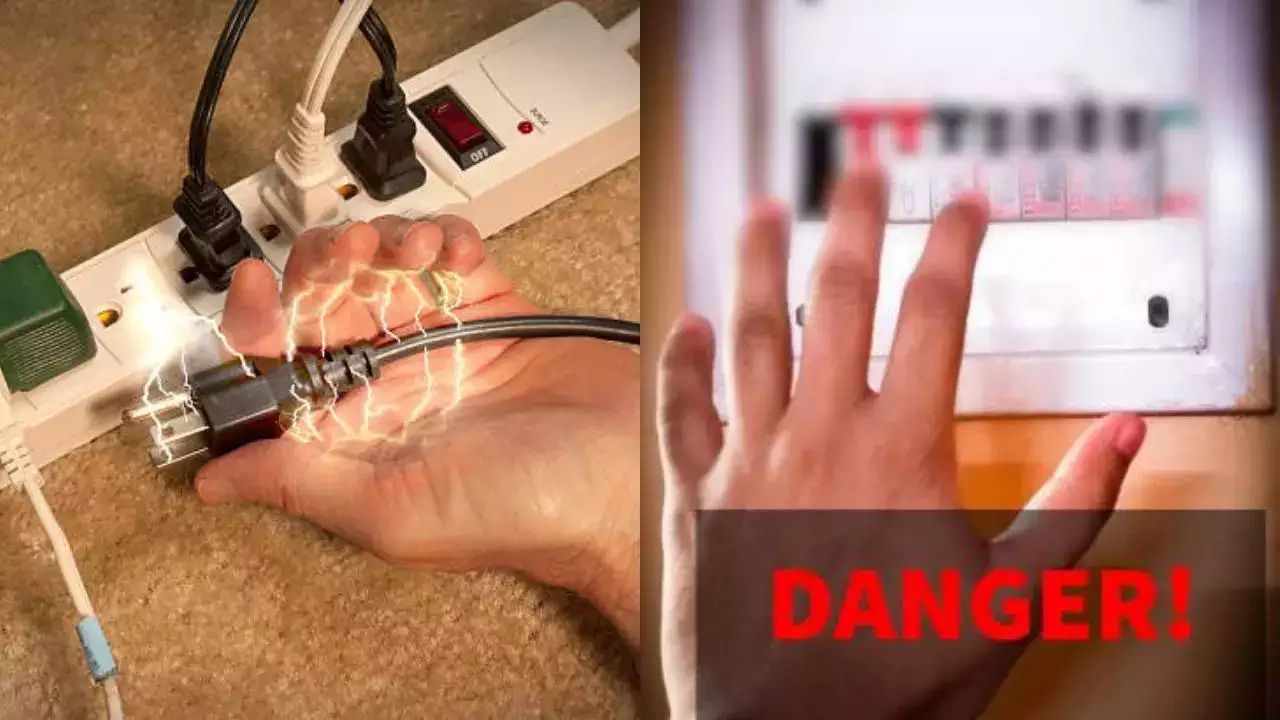
An electric shock occurs when someone has direct contact with a high-voltage current that travels through the body
A young woman lost her life due to an electric shock while removing her phone, which she had put on charge in a village in the Balia district of Uttar Pradesh, police said. According to reports, the 22-year-old got electrocuted early in the morning and was taken to a primary health centre, where she was declared dead.
News reports say it could either be due to faulty wiring or a spike in electricity levels.
What causes an electric shock?
According to experts, an electric shock occurs when someone has direct contact with a high-voltage current that travels through the body. There are several things that can lead to a shock, including:
- Being struck by lightning
- Contact with downed power lines
- Putting fingers or objects into an electrical socket
- Touching faulty or frayed electrical cords or appliances
- Touching overloaded electrical outlets
Signs and symptoms of shock
Doctors say the signs and symptoms of an electrical shock vary based on the type and amount of voltage you may come in contact with. Some of these include:
- Numbness and tingling
- Burns
- Seizures
- Irregular heartbeat
- Breathing irregularities or breathlessness
- Vision or hearing issues
- Muscle spasms
- Headaches
- Loss of consciousness
- Cardiac arrest
Many symptoms caused by touching a frayed kitchen appliance cord are usually much less severe than those caused by higher-voltage shocks from sources such as power lines or lightning.
What kind of first aid should be given to someone who gets an electric shock?
When someone gets a serious burn, doctors may treat the person for burns. However, make sure to follow these steps:
- Examine the person visually but do not touch them immediately, as they can pass the electrical current on to you if still connected to the electrical source.
- Call the emergency services right away.
- Check for the main electricity source and turn it off whenever possible.
- When you are sure you will be safe from electrical shock, check the victim's breathing and pulse.
- Begin giving cardiopulmonary resuscitation or CPR, if breathing has stopped.
- If the victim’s breathing becomes faint, lay them down with their legs elevated. Bring the head slightly below the trunk of the body.
- Do not treat any burns or remove clothes till help arrives.
- Do not even touch burns, break blisters, or remove burnt clothing, as electric shock may cause burns inside the body, so be sure the person is taken to a doctor first.
How to protect yourself from electric hazards?
Whenever you are at home, make sure to:
- Never touch any electrical circuits and equipment with wet hands and make sure to turn off the power at the main breaker or fuse on the service panel.
- Never turn power on or off yourself or use an electric tool or appliance while standing in water.
- If you see frayed wiring or sparks or a bad smell, make sure to immediately shut off the electrical system.
Get Latest News Live on Times Now along with Breaking News and Top Headlines from Health and around the world.


